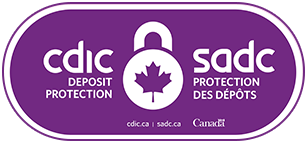Learn to recognize the signs of Elder Abuse
TORONTO, March 18, 2015 /CNW/ – Elder abuse is on the rise in Canada and professionals dealing with seniors on a regular basis should be vigilant and watch for signs of mistreatment.
That, according to Yvonne Ziomecki, SVP, HomeEquity Bank – the only Canadian bank working exclusively with seniors – is the only way to combat this serious issue.
From doctors and dentists to bankers and lawyers, all professionals interacting with seniors can play an important role in helping to report suspected incidents of elder abuse.
HomeEquity Bank team members have heightened sensitivity around this issue, notes Ms. Ziomecki, and unfortunately, have encountered circumstances where elder abuse is suspected. These instances are immediately reported to the proper authorities.
With this in mind, HomeEquity Bank today highlights important information for professionals interacting with seniors so they may identify the key signs of elder abuse. Recognizing abuse, which occurs across all socio-economic levels, is vital to protecting the ever-increasing number of seniors in Canada. They include:
Watch for a sudden appearance of physical injuries such as bruises and sprains
Stay alert to a change in finances
Identify changes in behaviour or appearance
Watch for ‘new’ suspicious relationships
Any of the above could be signs of abuse. In an emergency situation, it’s crucial to immediately call the police.
For non-emergency situations, the Government of Canada lists provincial and territorial resources on elder abuse here: http://www.seniors.gc.ca/eng/pie/eaa/help.shtml
According to the Advocacy Centre for the Elderly (ACE), elder abuse includes:
Physical abuse such as slapping, pushing, beating or forced confinement
Financial abuse such as stealing, fraud, extortion or misusing a power of attorney
Sexual abuse as sexual assault or any unwanted form of sexual activity
Neglect as failing to give an older person in your care food, medical attention, or other necessary care or abandoning an older person in your care
Emotional abuse such as treating an older person like a child or humiliating, insulting, frightening, threatening or ignoring an older person
According to the Canadian Nurses Association brief on Elder Abuse (2011) the rates are increasing right across the country with 7,871 incidences reported in 2009. This is an increase of 14% from 2004.
“We encourage our HomeEquity Bank team and all professionals dealing with seniors to be alert to signs of neglect, signs of psychological or emotional abuse, restricted liberty and coercion related to finances and wills,” notes Ms. Ziomecki. “In our society, we all must play a role in keeping seniors safe.”
About HomeEquity Bank
HomeEquity Bank is a Schedule 1 Canadian Bank offering reverse mortgages https://www.homeequitybank.ca/. The company was founded 28 years ago as an annuity based solution addressing the financial needs of Canadians who want to access the equity of their top asset – their home.
SOURCE HomeEquity Bank
For further information: or to interview Yvonne Ziomecki, please contact: Teresa Donia, iAMBIC Communications, teresa@iambic.ca, 905-508-5550; Yvonne Ziomecki, Senior Vice President, Marketing and Sales, HomeEquity Bank, yziomecki@homequitybank.ca, 647-723-6812
